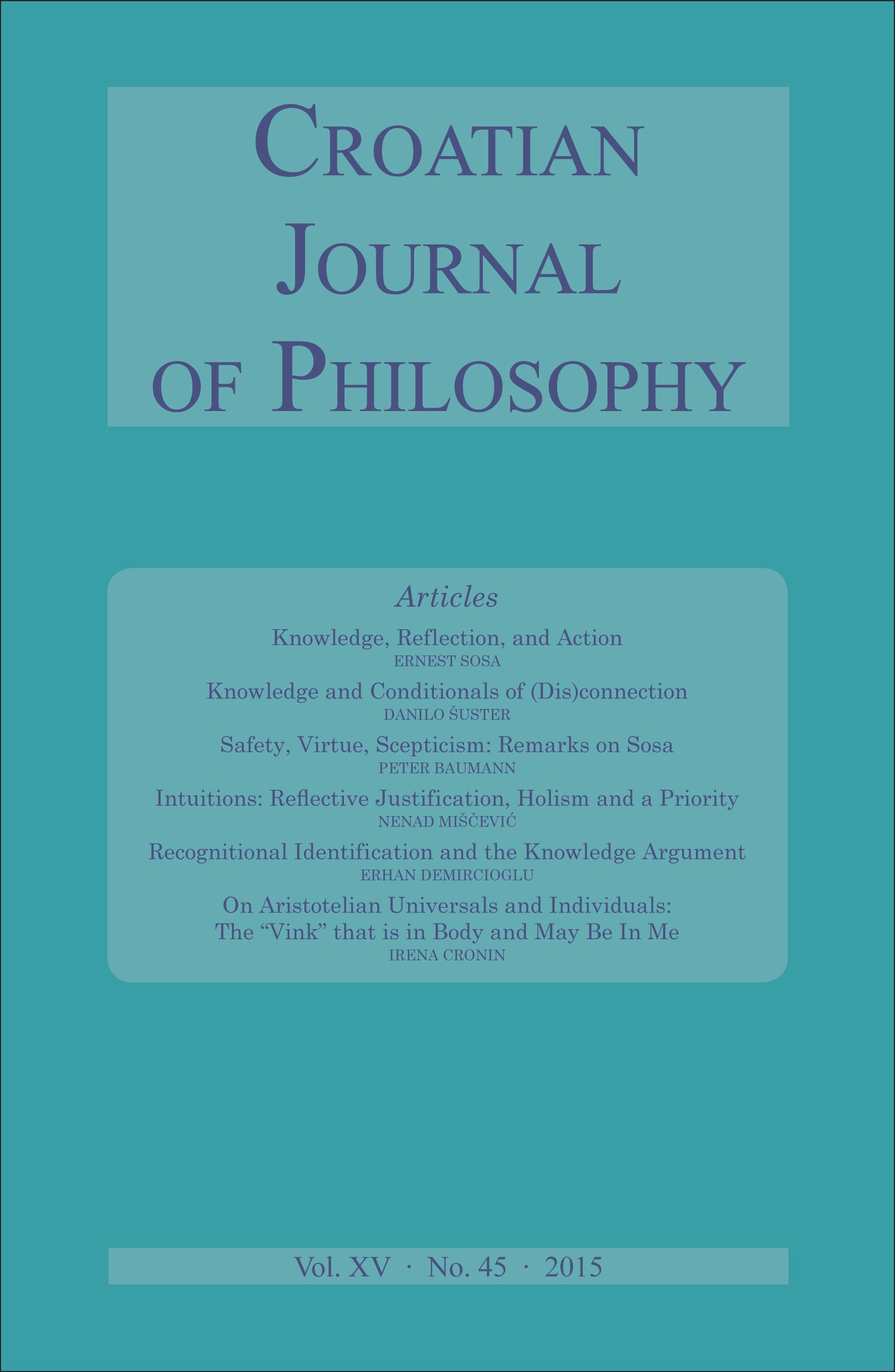Intuitions: Reflective Justification, Holism and Apriority
Intuitions: Reflective Justification, Holism and Apriority
Author(s): Nenad MiščevićSubject(s): Epistemology, Logic, Analytic Philosophy, Philosophy of Mind
Published by: KruZak
Keywords: Virtue epistemology; a priori; a posteriori; two-level epistemology; intuition;
Summary/Abstract: The paper discusses Sosa’s view of intuitional knowledge and raises the question of the nature of reflective justification of intuitional beliefs. It is assumed, in agreement with Sosa, that pieces of belief of good researchers are typically reflectively justified, in addition to being immediately, first-level justified. Sosa has convincingly argued that reflective justification typically mobilizes and indeed should mobilize capacities distinct from the original capacity that has produced the belief-candidate for being justified, in order to assess the reliability of the original capacity. It has to go beyond justifiers that are of the same-kind (“homogeneous”) as first-level immediate ones, in order to enlarge the circle of justification (and thus avoid viciousness), and is, therefore, holistic and coherentist. But if this holds, it seems that reflective justification of armchair beliefs, presumably produced by intuition and some reasoning, should revert to empirical considerations testifying to the reliability of intuition and reasoning. Therefore, it typically combines, in an articulated way, a posteriori elements contributing to the thinker’s reflective trust in her armchair capacities. In short, the paper argues that Sosa’s own view of second-order justification goes better with a more aposteriorist view, if it does not even force such a view.
Journal: Croatian Journal of Philosophy
- Issue Year: XV/2015
- Issue No: 45
- Page Range: 307-323
- Page Count: 17
- Language: English
- Content File-PDF

